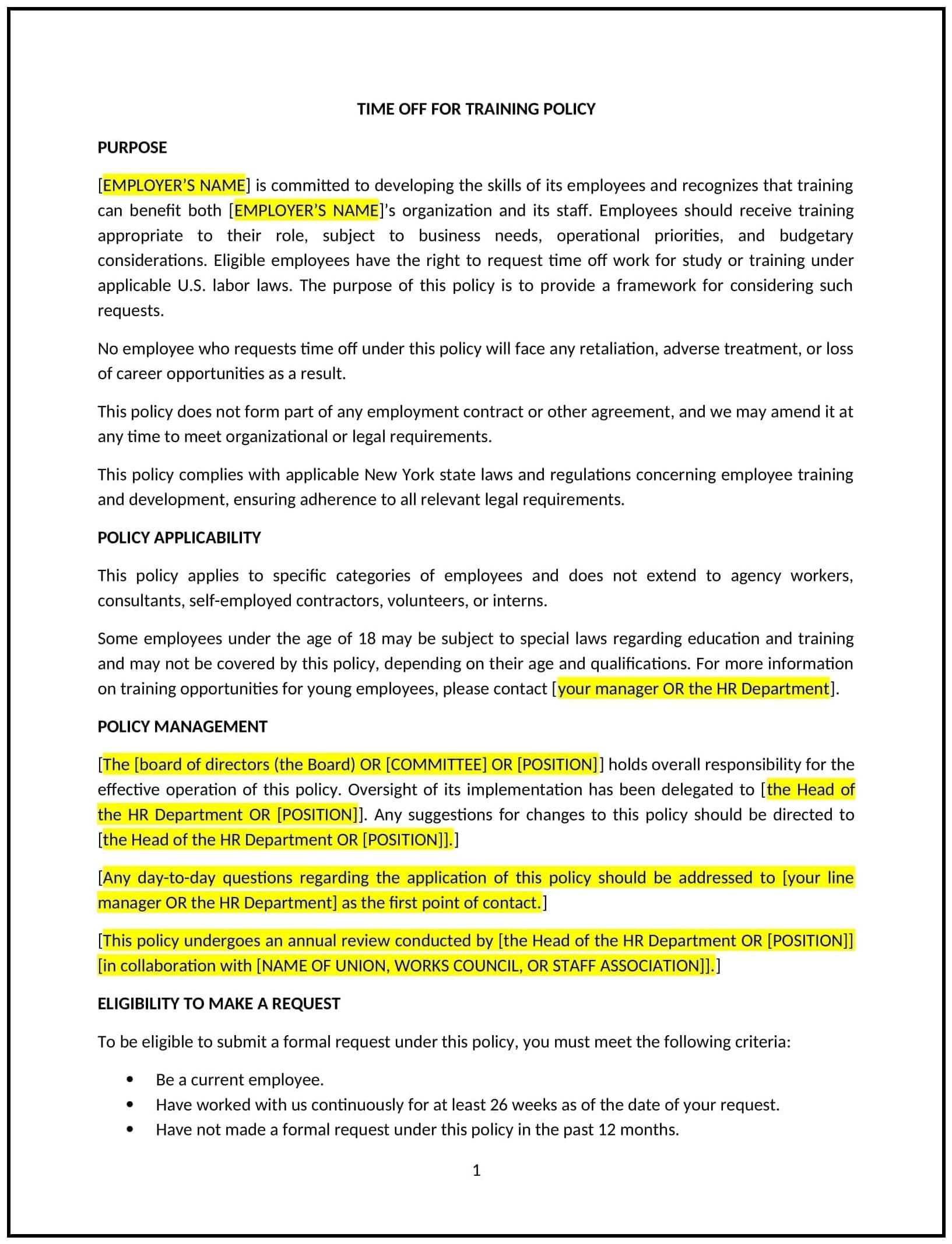Time off for training policy (New York): Free template
Got contracts to review? While you're here for policies, let Cobrief make contract review effortless—start your free review now.

Customize this template for free
Time off for training policy (New York)
This time off for training policy is designed to help New York businesses establish clear guidelines for employees seeking time off to attend job-related training or professional development opportunities. Whether businesses are supporting employees’ growth through external workshops, certifications, or internal training programs, this template provides a structured approach to managing training-related time off.
By adopting this template, businesses can foster employee development, improve skills, and maintain a competitive workforce.
How to use this time off for training policy (New York)
- Define eligible training: Clearly specify the types of training covered under the policy, such as job-related workshops, certifications, conferences, or online courses.
- Outline approval procedures: Detail the process for employees to request time off for training, including required documentation (e.g., training invitations, schedules) and timelines for submission.
- Address pay during training: Specify whether the time off for training is paid or unpaid, and outline any conditions (e.g., employees must complete a certain number of hours of training).
- Set expectations for training outcomes: Include expectations that employees will share knowledge gained from the training with relevant colleagues or apply new skills to their work.
- Clarify consequences: Outline the actions taken if employees fail to complete the training or do not meet the company’s expectations for professional development.
Benefits of using this time off for training policy (New York)
This policy offers several benefits for New York businesses:
- Promotes employee development: Offering time off for training allows employees to expand their skills and knowledge, which can lead to improved job performance.
- Enhances employee satisfaction: Supporting professional growth shows a commitment to employees’ careers, improving job satisfaction and retention.
- Increases productivity: Training programs help employees perform better in their roles, increasing overall productivity and business outcomes.
- Supports business growth: Well-trained employees contribute to the business’s ability to innovate and adapt in a competitive market.
- Fosters a culture of learning: Providing opportunities for training promotes a culture of continuous improvement and professional development within the organization.
Tips for using this time off for training policy (New York)
- Communicate clearly: Ensure all employees understand the policy, including how to request time off for training and what training programs qualify under the policy.
- Plan ahead: Allow employees to submit training requests in advance to facilitate scheduling and coverage of their responsibilities during their absence.
- Monitor training outcomes: Track the success of training programs by gathering feedback from employees and assessing whether new skills are applied effectively in their roles.
- Offer a variety of training options: Provide employees with a range of training opportunities that cater to different career paths and skill levels.
- Review regularly: Update the policy to reflect changes in training opportunities, business needs, or New York state regulations.